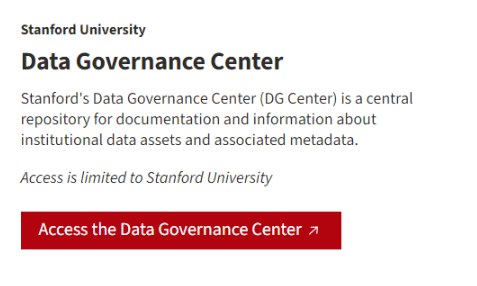Key highlights
- Big data analytics and AI-powered tools like LLMs are unlocking deeper insights from vast data, aiding decision-making in areas like sales and marketing.
- Traditional methods like ethnography and storytelling are enriched by data, giving a nuanced understanding of customer behavior and motivations.
- As research relies heavily on data, data breaches pose a major threat. Secure technologies and ethical frameworks are essential for responsible data utilization.
- Businesses must invest in training, infrastructure, and a culture of innovation to adapt to new research methods and stay ahead of the curve.
Imagine having a surplus of something but not being able to use it. That’s how businesses must feel living in the age of data overload. When asked, nearly 68% of Chief Data Officers said they wished to improve the way they used data and analytics. Yet, 71% state poor data skills as the top most organizational challenge. Business research sits at the heart of informed decision-making. Traditionally, researchers relied on established methods like surveys, interviews, and focus groups to gather insights. While these approaches serve us well, they face certain limitations in today’s dynamic world. The sheer volume of data, evolving consumer behaviors, and the need for real-time insights necessitate a reimagining of our research methods. Time calls for agile innovation in business research methods. In this blog, we explore the latest trends in business research methods, the challenges faced and what the future holds.
Emerging trends in business research methods
Continuous innovation in research methods is the need of the hour, considering we live in a world characterized by vast data volumes, dynamic consumer behavior, and the need for real-time insights. This necessitates a reimagining of our research paradigms, embracing new trends that promise deeper understanding and a competitive edge. Here are some of the trends that have characterized 2023 for business research methods.
Data analytics and big data
Decision-making – a process that previously relied on subjective assessments and data gathering – has transformed since the turn of the century. As data becomes abundantly available, business research methods needs to be geared towards decoding vast amounts of data and transforming it into actionable business insights. Big data leverages machine learning to analyze large datasets, allowing businesses to uncover hidden patterns and trends. That way businesses can make decisions based on factual insights rather than intuition.
Big data analytics has come around just in time as more companies strive to stay competitive and relevant. As expected, it has seeped into various aspects of business development; optimizing sales funnels, streamlining processes, enhancing productivity, and implementing agile pricing models. Notably, 42% of sales leaders report significantly higher ROI than expected from sales analytics.
Generative AI and Machine Learning
Even with data democratization, one challenge remains unaddressed – how can most executives individually make sense of the data available? Generative AI answers this by simplifying the complexities of data science. This is why organizations are more open to investing in AI. This can be backed by 40% of businesses indicating a willingness to increase AI investment.
Companies that have adopted Large Language Models (LLMs) have the upper hand in natural language tasks and predictive analytics. While early instances of data breach and loss have caused skepticism, organizations with embedded AI are gaining a competitive edge. This signals a shift towards in-house LLM model development.
Evolving qualitative methods
Qualitative methods have always been a cornerstone in business research methods. Even so, it has evolved and upgraded over the years. Ethnographic and observational studies offer a new-found perspective. Therefore, by immersing researchers in real-world scenarios, this approach allows for a nuanced understanding of consumer behaviors and preferences.
The integration of storytelling and narrative analysis further elevates the qualitative research landscape. This introduces a distinctly human touch to the data. Rather than relying solely on numerical data points, it delves into individuals’ narratives and stories.
This qualitative methodology transcends the surface, uncovering emotional dimensions, motivations, and contextual factors that influence decision-making. As a result, business can get a comprehensive and holistic view of the consumer journey, providing valuable insights that numerical data alone may overlook.
How does it help? Armed with this in-depth understanding, businesses can tailor their strategies with precision. Whether refining products, enhancing customer interactions, or shaping marketing campaigns, the qualitative approach empowers organizations to align their efforts with the authentic needs and desires of their target audience.
Increasing focus on data security
As business research methods primarily rely on data, ensuring its security has become paramount. Insider security breaches, highlighted by the latest IBM Cost of a Data Breach report, underscores the challenges organizations face. With 82% of data breaches involving cloud data, implementing robust data security measures is imperative. Firewalls and zero-trust protocols offer some protection, but securing data at internet endpoints still poses a challenge. As regulations become stricter, the need for an engineering-first approach to customize security features for organizations is evident.
For instance, to safeguard data, Stanford University has established a comprehensive data governance framework that includes data access controls, security protocols, and data usage guidelines. By doing so, they are ensuring responsible data sharing, building trust with stakeholders, and ultimately unlocking valuable insights for better decision-making and enhanced outcomes.

Related reading: Innovations in rapid research methods: Trends shaping the consulting landscape
Challenges and opportunities in business research methods moving forward
While the potential of new technologies in business research is vast, it is crucial to acknowledge the ethical challenges associated with data collection and analysis. Meanwhile, algorithmic bias, data manipulation, and the potential for misuse of sensitive information necessitate robust ethical frameworks and data governance policies. Therefore, businesses must prioritize transparency, inclusivity, and responsible data utilization to maintain trust and build a sustainable research ecosystem.
While implementing and adopting new research methods can be complex, it also requires significant investments in training, infrastructure, and cultural change. Overcoming resistance to change and fostering a culture of innovation within organizations will be key to successful adoption. Furthermore, collaboration between researchers, technologists, and business leaders will be crucial to bridge the gap between theoretical advancements and practical implementation.
Looking ahead, the future of business research methods promises exciting advancements. The integration of artificial intelligence, machine learning, and advanced analytics is only bound to unlock deeper insights and enable real-time decision-making. Furthermore, the rise of virtual and augmented reality will revolutionize research methodologies, providing immersive experiences and fostering deeper understanding of consumer behavior.
To thrive in this evolving landscape, businesses must embrace innovation and invest in continuous learning and adaptation. Building a culture of experimentation, fostering collaboration, and encouraging the development of new skills will be crucial in staying ahead of the curve. By proactively embracing new technologies and methodologies, businesses can unlock unparalleled insights, gain a competitive edge, and contribute to shaping the future of business research.
Still contemplating on the best business research method for you? Talk to us.






